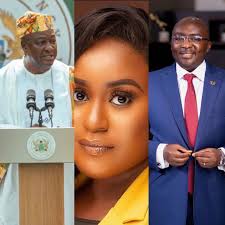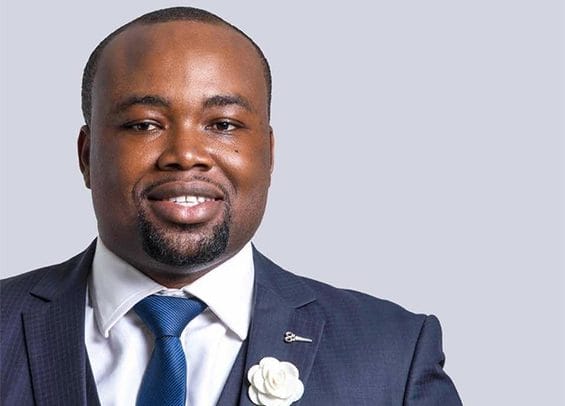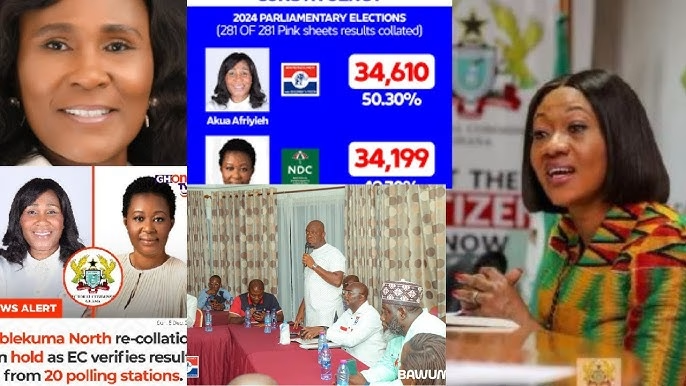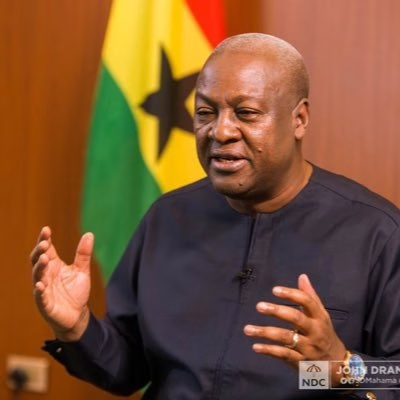Victory for Press Freedom: Kelvin Taylor’s Bench Warrant Quashed by Supreme Court
In a significant ruling today, Ghana’s Supreme Court has quashed a 2020 arrest warrant against US-based social commentator Kelvin Ekow Taylor, ruling in a 4–1 majority decision that the warrant violated the principles of natural justice The judgment marks a turning point for media freedom and online expression in Ghana.
Background: The 2020 Arrest Warrant
In January 2020, the High Court, presided over by Justice Eric Kyei‑Baffour, issued a bench warrant for Taylor’s arrest. He had posted a video on Facebook alleging that the judge’s promotion was influenced by political affiliations, calling it “extremely scandalous” and contemptuous.
The High Court directed Ghanaian security agencies to arrest Taylor—even though he was based in the United States—and bring him before the court to face the charges
The warrant lingered for five years, serving as a backdrop to wider debates about the reach of Ghanaian courts in online commentary and freedom of expression.
The July 22, 2025 Ruling
A panel of five Supreme Court justices, led by Justice Issifu Omoro Tanko Amadu, convened and ruled 4–1 that the arrest warrant was unlawful because Taylor was never given an opportunity to defend himself, violating due process
Justices supporting the ruling included Senyo Dzamefe, Gbiel Simon Suurbaareh, and Philip Bright Mensah—while Justice Ernest Yao Gaewu dissented
Chief Justice Tanko Amadu emphasized that even contempt proceedings require jurisdictional safeguards and that issuing a warrant without due notice is unacceptable.
Taylor Speaks Out
Following the verdict, Taylor was seen walking out of the Supreme Court, visibly elated and accompanied by his legal team MyJoyOnline. In statements after the ruling, he emphasized that the decision reaffirms the importance of free speech and that his original commentary was rooted in publicly available information.
Implications for Free Expression and Journalism
Strengthening Press Freedom
This judgment underscores that Ghanaians—especially those abroad—must be given a chance to defend controversial speech. It marks a significant precedent for online commentators and journalists facing contempt charges.Limits of Judicial Overreach
The court’s ruling highlights that judicial powers have boundaries, especially in the digital age. Even when confronting allegations of contempt, courts must respect procedural fairness.Checks and Balances in Action
The lone dissent serves as a reminder that internal checks exist within the judiciary. However, the majority decision signals a preference for open discourse over censorship.
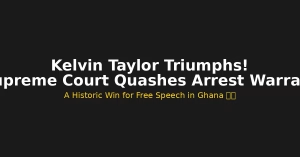
Public and Media Reaction
Online reaction has been overwhelmingly positive, with hashtags like #FreeKelvinTaylor and #MediaFreedomGH trending on Twitter. Commentators celebrate this as a milestone moment for freedom of expression in Ghana.
Legal experts argue that the ruling sends a signal: courts must adapt to the realities of global communication and exercise caution in cross-border cases.
Next Steps and Unanswered Questions
The Supreme Court’s full written judgment is pending release. Observers are keen to see details on jurisdictional limits, contempt definitions, and procedural safeguards.
It remains unclear whether the original contempt proceedings—including the allegations made by Justice Kyei‑Baffour—will be dropped or retried.
The ruling may impact future cases involving citizens in the diaspora, as more voices call for reforming contempt procedures to include equitable defense options.
Final Thoughts
Kelvin Taylor’s legal victory today is more than personal—it’s symbolic. It represents a win for media freedom, due process, and judicial restraint in the digital era. The decision marks a critical point in Ghana’s ongoing conversation on free speech, legal fairness, and jurisdictional boundaries.
While Taylor enjoys this milestone, the broader consequences are just beginning to unfold. As the full judgment is released and more cases emerge, Ghana’s legal and media landscapes may see lasting changes—empowering online voices and protecting dissent.
Tags: #KelvinTaylor #MediaFreedom #SupremeCourtGH #ConstitutionalRights #GhanaLaw #FreedomOfSpeech #SavanabitLaw


